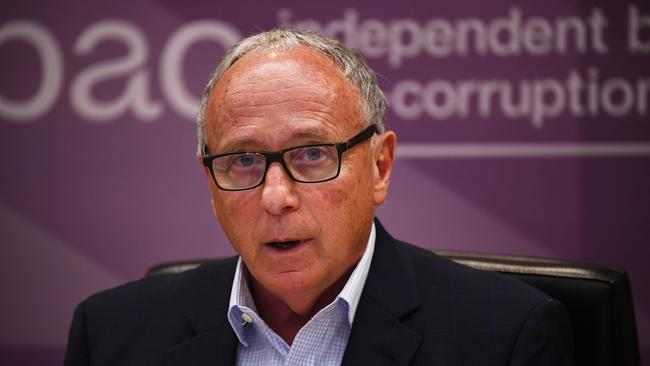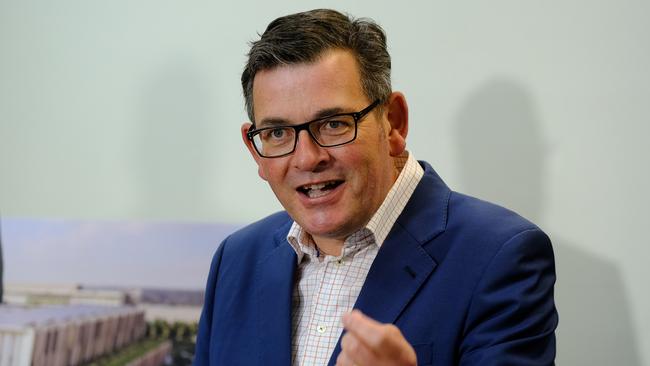IBAC commissioner Robert Redlich says more hearings should be held in public
Victoria’s top anti-corruption commissioner says more hearings should be held in public, following revelations Daniel Andrews has been quizzed in private.
Victoria
Don't miss out on the headlines from Victoria. Followed categories will be added to My News.
Victoria’s most senior anti-corruption commissioner says more hearings should be held in public following revelations Daniel Andrews has twice been quizzed in private.
In forceful comments to a parliamentary hearing on Monday commissioner Robert Redlich said IBAC was constrained by “onerous” laws that required many hearings to be held behind closed doors.
Under Victorian legislation IBAC may only examine a witness in public if IBAC is satisfied that there are exceptional circumstances.
In 2020 the Andrews Government further restricted the capacity of IBAC to conduct a public examination.
Under the laws IBAC may only order a person to appear as a witness in a public examination if it considers there are exceptional circumstances, or it is in the public interest.
It can also order public hearings if other factors arise, including whether the conduct that is the subject of the investigation may constitute serious or systemic corrupt conduct.
But the risk of causing unreasonable damage to a person’s reputation, safety or wellbeing requires hearings to be held in private.

The Premier faced renewed calls to stand down last week after it was revealed he has been secretly grilled over his relationship with property developer John Woodman.
Mr Andrews testified in private as part of Operation Sandon which is probing allegedly corrupt land deals.
He also gave evidence at a private hearing as part of IBAC’s Operation Watts, which investigated claims of widespread corruption within the Victorian Labor Party.
Commissioner Redlich told the parliament’s Integrity and Oversight committee that public hearings were a preferred model.
“I don’t think there can be any arguments that public hearings are still the most effective way of developing trust in institutions that have to investigate and expose corruption,” he said.
“I don’t think there’s a doubt that by placing matters in the public domain one is best able to ensure that there is a public and executive government appetite to embrace reforms that are exposed when particular wrongdoing is revealed.”
Mr Redlich said there were good reasons to hold hearings in private, particularly where the welfare of witnesses was in question.

“Minds can differ about the extent to which public hearing rights should be limited,” he said.
“Our requirements are more onerous than they are in other circumstances.
“I think there could be serious consideration given to the exceptional circumstance requirements.”
Barrister Paul Hayes, QC, has repeatedly called for more transparency around the IBAC.
“The value of having an anti-corruption hearing which consistently questions all witnesses relevant to its inquiry in public is to ensure transparency not just of IBAC’s investigations, but also IBAC itself,” he said
“It is difficult to understand why IBAC has held public hearings for some witnesses giving evidence relevant to an investigation and not others. Consistency here is the key.
“Either have a secret investigation, as IBAC is entitled to do under its governing legislation, or have a public investigation where all witnesses are questioned in public, but not an investigation which is a little bit of both.”
Mr Hayes said an inconsistent approach by IBAC in determining which witnesses give their evidence in public and which witnesses do not, risked embarrassing the commission.
“Witnesses whose evidence has not had the benefit of being aired in the same public forum in which other evidence in an inquiry has come to light and where the public is able to form a balanced and more complete view of all of the evidence gathered in the investigation can be subject to scandalous speculation,” he said.
“Further, public confidence in IBAC is vulnerable to being undermined, where the public might perceive that IBAC treats some witnesses differently to others.”





